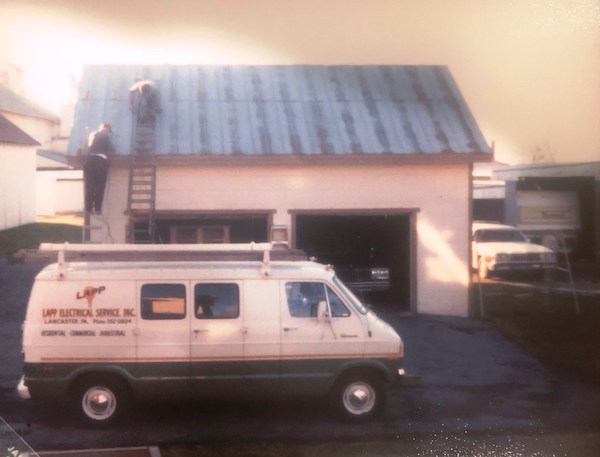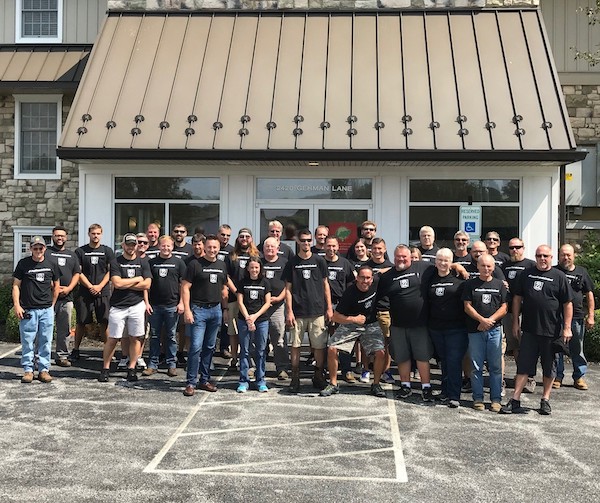By Ashley Luke
Small businesses are big. Today, there are more than 33.2 million small businesses in the United States and 19% of them are family owned. Many of them operate in the trade industries—construction, plumbing, electrical, painting and more. They employ mothers, fathers, sisters, brothers and cousins, often through multiple generations, and share decades of valuable trade knowledge, as well as financial success.
A family business has many benefits, including the ability to make swift decisions because of the closeness of partners in (hopefully) good communication. The leadership is frequently empathetic, placing a priority on family values and is usually willing to make greater sacrifices for the success of the business.
Of course, working with family isn’t just business, it’s personal, too. The complex dynamic often brings potential pitfalls along with the success. It can be hard to separate family life from work life, which can create serious rifts if not dealt with properly. And sometimes difficult problems are inherited in the line of succession, leaving the next generation of leadership to unravel difficult situations they didn’t create.
Here’s a closer look at some benefits and pitfalls of family operations, plus thoughtful tips and strategies to help resolve conflicts when they arise and create a smooth succession when the next generation is ready to take the reins of the family owned future.
The Benefits
Knowing the Founder
When the founder is your father, mother or close relative, it is easier for you to embrace the business’ core values and communicate them to non-family employees. This builds a strong culture within your business, creating an environment that inspires everyone.

Lapp Electric Founder Manny Lapp in 1988.
Tim Lapp, co-owner and CEO of Lapp Electric in Lancaster, Pa., a second-generation family owned business, even wrote a book based on the history and culture his father, Manny Lapp, cultivated when he started the business in 1969.
“After my brother and I bought the business from our dad,” Tim Lapp says, “I wanted employees who didn’t know him to have a better understanding of why values are important to us.”
Family Trust
You know your family inside and out. If they’re your business partners, you’re more likely to have a strong bond that encourages trust and faithfulness to the business. It also makes growing the business easier when you know you have a strong support system.
A Sense of Pride
When you’ve grown up in a business, you can’t help but feel a sense of pride in the work, the company and the industry in which it operates. This personal investment in the company drives you to inspire others and ensure the business is successful for future generations.
The Pitfalls
Too Much Familiarity
When you work with family, you often know each other too well. This means you already know their strengths and weaknesses. It also means that you may have a tendency to focus too much on family tradition, potentially making you closed-minded to change, which could impede ingenuity, creativity and opportunity for growth and efficiency down the road.
Existing Family Dynamic
As Tim Lapp says of working with his older brother, Greg, who serves as co-owner and CFO, “brothers are born for adversity.” Unfortunately, workplace conflicts may carry over to your personal life, and vice versa, which creates uncomfortable situations that can have serious negative impacts on the business. It’s important to keep lines of communication open to avoid judgement, criticism and lack of support from family and others in the business.


Then and Now: Founded by their father Manny in 1969, brothers Tim (right) and Greg (left) Lapp took over the family business in 2002 and now run operations with the help of General Manager Bob Hess (center left) and Controller Diana Smoker (center right).
Strategies for Success
Remember: It’s Just Business
When Resolving Conflict Sometimes you inherit difficult situations, such as family members who aren’t the best fit for their job. Deciding to move the family member to a different position or let them go entirely may cause disagreements within the family, causing events like Thanksgiving dinner to be stressful.
However, it’s important to do what’s in the best interest of the company; not what’s best for family relationships. Remember, not every family member is a good fit for the business.
Tim Lapp assures that time does heal family business wounds. “It may be difficult to let an uncle or cousin go, but over time the family does understand that the decision was made in everyone’s best interest,” he says.
You can’t be compassionless, though—proceed with care and consideration. It’s important to strike the right balance of empathy and tough decision-making based on your family and business dynamics.
Implement Systems That Align with Goals and Culture
First, use a business coach—one can be found by searching LinkedIn or contacting your local Chamber of Commerce—to help systemize your business and establish a career path for leadership roles. This is especially important if multiple family owners are involved in co-ownership or partnership roles.
“You need an impartial mediator,” advises Tim Lapp. “You may even want this support over an extended period of time.” Lapp Electric consulted with a business coach for seven years.
Also, intentionally include non-family members as part of your leadership team. Separating your emotions from the business is not an easy task, especially if you are directly working with or managing family members, and outsiders can provide a beneficial third-party perspective. This also encourages other talented employees to advance within the company and can help prevent resentment among the ranks over familial favoritism.
At Lapp Electric, two leadership positions are filled by individuals outside the family: the general manager and the controller.
“They add an impartial perspective to our leadership team that balances our business perfectly,” says Tim Lapp.
Finally, establish a formal hiring process that is conducted by non-family members. Require family members interested in joining the company to follow the same job application, interview and hiring process as outsiders—and create a fair promotion and salary system that is based on individual merit and ability. This helps to objectively determine whether a family member is indeed qualified and motivated to be an engaged participant in the company’s growth, rather than just an easy fit.
Create a Clear Plan for Succession
Studies have shown that only a third of family owned companies make it to the second generation, and just 12% make it to the third. Often, family businesses dissolve because they don’t have a succession plan in place.
Because leadership succession can become a source of conflict, it’s best to work with a consulting group to assist you in formulating timelines and strategies. This also helps to remove you from bearing the sole burden of difficult decisions and choosing new leadership roles.
However, don’t push family members into leadership positions if they’re not interested or ready. Let them decide whether or not it’s a career path they would like to take. Frequently family members explore careers elsewhere and later decide to join the family business.
The family members who become your successors may surprise you. Tim Lapp says his youngest daughter has expressed interest in learning more about the family business. Currently a college student pursuing a business degree, she has started interning with Lapp Electric’s controller. And the husband of Tim Lapp’s oldest daughter is hoping to join the family business, as well.
“My son-in-law is currently in his fourth year of apprenticeship school,” he says.
While it’s still unclear who the new leadership team will be, Tim Lapp, who recently turned 50, is starting to think about the future.

In the 50 years the company has been in business, Lapp Electric has remained within the family and grown to more than 30 employees.
“Lapp Electric has been a family owned business for over 50 years, and my brother and I have successfully led the business for the past 20 years,” he says. “We’re excited to hopefully pass the business along to the third generation.”
In the 50 years the company has been in business, Lapp Electric has remained within the family and grown to more than 30 employees.
For Future Generations
Family business is filled with ups and downs. With the proper planning and strategies in place, as well as thoughtful leadership, the culture the original founders created—along with valuable trade skills and years of success—can be passed down to thrive in future generations.
Ashley Luke is Senior Product Manager, Duct Tapes, Shurtape Technologies, LLC.



